If your child is dreaming about camp, it’s not too soon to make a choice for summer 2011! Many campers are counting the days until they can return, anticipating seeing friends and staff, and looking forward to another super summer. Others are wondering about camp for the first time. For everyone, there are a number of resources and ways to find out more about each camp.
Here are a few suggestions for choosing which camp is the best fit for your camper:
1. Talk to friends and family who have already been to camp. One camper recently chose Camp Weequahic to follow in the footsteps of a cousin and a friend. Since the seasoned campers had a wonderful time and could not stop talking about their adventure, the new camper decided to go and experience things for herself. Other first time campers go to camp with a special friend or cousin who is also a first-timer. Some campers follow in the footsteps of an older relative and start a new generation of alumni—so, make sure to ask for suggestions from family and friends who may have been campers!
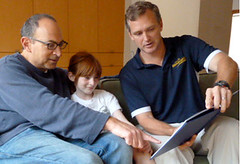
2. Watch camp videos, attend an information night (or both), and it will be easy to visualize the fun ahead. It often helps to picture the experience and imagine a specific setting. Campers can watch a video more than once and report that the video often gets them “hooked”. They start to see themselves at camp. A home visit is also a great way to make personal contact with actual campers and staff.
3. Explore each camp website to find out what’s distinct about that camp, check faqs and read firsthand accounts. You’ll find links to social media conversations and get a feel for each unique location. The websites are also a good place to check out changes and additions from previous years—there’s a lot going on.
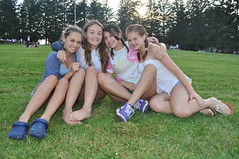
4. For questions about homesickness, safety, how to tell if your child is ready for camp or more, read previous blogs that are packed with information and answers. If you’re wondering, someone else is probably wondering too!
5. If you’re planning for Summer 2012, make arrangements to visit camp this year. You can tour Camp Weequahic during the summer. Throughout the summer, Camp Weequahic your child can also sample the Weequahic experience through the Camper for a Day and Camper for a Week programs. Camp Starlight offers tours, as well.
6. Always remember that there are no dumb questions. Make a list and don’t feel that you can’t ask. Now is the perfect time to communicate with camp staff before camp is in full swing and fun is in full gear!
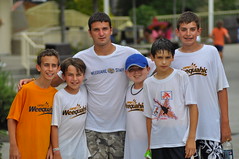
A Camp Weequahic parent recently shared with us that after seeing camp pictures, she immediately felt jealous and wished she could go too. That summer, her daughter’s first letter from camp arrived asking if she could stay 6 weeks instead of the 3 she had signed up for! Those first instincts from looking at photos online and a little research had helped find a perfect fit. Moral of the story: You don’t have to go far to find out more about camp. Don’t be surprised if the process turns out to be a lot of fun—everything about camp has a way of being that!
Do you have a story to share about selecting a camp with a friend or relative? Who would you choose to take to camp?

 While campers have a lot of choice in daily program at Weequahic, that is not the aspect of choice on which I mean. Rather, I’d like to focus on the more global meaning of the word.
While campers have a lot of choice in daily program at Weequahic, that is not the aspect of choice on which I mean. Rather, I’d like to focus on the more global meaning of the word.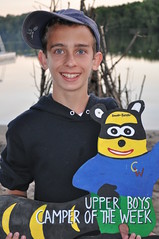 A mentor of mine recently told a story of doctor who works with people with difficult injuries and afflictions. Rather than ask his patients “How are you feeling today?”, the doctor always asked “What are your plans for the day?” Do you see the difference?
A mentor of mine recently told a story of doctor who works with people with difficult injuries and afflictions. Rather than ask his patients “How are you feeling today?”, the doctor always asked “What are your plans for the day?” Do you see the difference?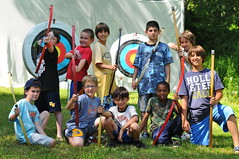 1. Communal Living
1. Communal Living